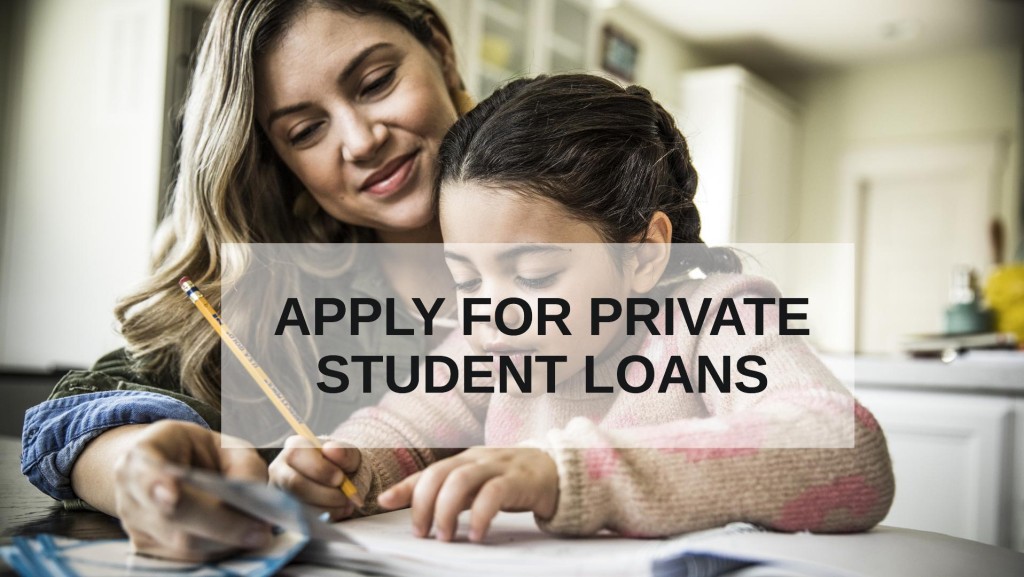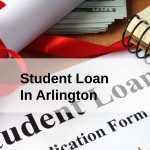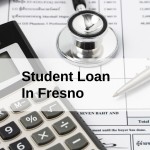In the pursuit of higher education, many students find themselves in need of financial assistance beyond what scholarships, grants, and federal aid can provide. Private student loans offer a viable solution for bridging the gap between the cost of education and available resources. Understanding how to navigate the application process for private student loans is crucial for students seeking the best financing options. This comprehensive guide aims to provide valuable insights and step-by-step instructions on applying for private student loans, highlighting the best practices and considerations along the way.
Understanding Private Student Loans
Before delving into the application process, it's essential to grasp the fundamentals of private student loans. Unlike federal loans, which are funded by the government, private student loans are offered by banks, credit unions, and online lenders. These loans typically have varying terms, interest rates, and eligibility criteria compared to federal loans. While federal loans often come with fixed interest rates and borrower protections, such as income-driven repayment plans and loan forgiveness programs, private loans tend to have variable interest rates and fewer repayment options. However, private student loans can still be a valuable resource for students who have exhausted other avenues of financial aid.
Researching the Best Private Student Loan Options:
Best student loan lenders and best college loans vary based on individual circumstances, including credit history, income, and educational institution. Conducting thorough research to identify reputable lenders offering competitive rates and favorable terms is crucial. Online resources, such as comparison websites and financial aid portals, can help students compare multiple loan options side by side. Additionally, consulting with financial aid advisors or loan counselors can provide valuable insights and guidance tailored to specific needs.
Assessing Eligibility and Loan Requirements:
Once potential lenders have been identified, it's essential to assess eligibility requirements and loan criteria. How to get a student loan largely depends on factors such as creditworthiness, income stability, and enrollment status. Most private lenders require borrowers to have a good credit score or a cosigner with a strong credit history. Additionally, lenders may consider factors such as the borrower's debt-to-income ratio and academic performance when evaluating loan applications. Students should carefully review each lender's eligibility criteria and gather necessary documentation, such as income statements, tax returns, and academic transcripts, to streamline the application process.
Comparing Interest Rates and Terms:
When evaluating private student loan options, borrowers should pay close attention to interest rates and loan terms. Student loan interest rates can significantly impact the overall cost of borrowing, so it's essential to choose a loan with a competitive rate. While federal student loans typically offer fixed interest rates, private loans may have fixed or variable rates. Fixed rates remain constant throughout the life of the loan, providing predictability and stability in monthly payments. In contrast, variable rates fluctuate based on market conditions, potentially leading to lower initial payments but higher costs over time. Borrowers should carefully consider their risk tolerance and financial goals when selecting between fixed and variable-rate loans. Additionally, reviewing loan terms such as repayment...
Applying for Private Student Loans:
Once borrowers have identified suitable lenders and compared loan options, the next step is to initiate the application process. While specific procedures may vary between lenders, the following steps generally outline how to apply for student loans:
Apply for student finance online or through a lender's website, providing personal and financial information, including Social Security number, income details, and academic enrollment status. Complete the Free Application for Federal Student Aid (FAFSA) if eligible, as some lenders may require this form to verify financial need and eligibility for federal aid programs. Submit any required documentation, such as proof of income, tax returns, or academic transcripts, to support the loan application. Include a cosigner if necessary to improve eligibility and secure a lower interest rate, especially for borrowers with limited credit history or income. Review and sign the loan agreement, carefully...
Understanding Repayment and Forgiveness Options:
Before finalizing a private student loan agreement, borrowers should thoroughly understand the repayment terms and available forgiveness options. Unlike federal loans, which offer various repayment plans and forgiveness programs, private loans typically have fewer options for student loan forgiveness and debt relief. However, some lenders may offer deferment or forbearance options in cases of financial hardship or unemployment.
Managing Loan Disbursements and Enrollment Verification:
Once the private student loan application is approved, borrowers should work closely with their chosen lender to manage the disbursement of funds and ensure proper enrollment verification with their educational institution. Typically, lenders will coordinate with the school's financial aid office to confirm the borrower's enrollment status and determine the amount of funds to disburse for each academic period. It's essential for borrowers to stay informed about the timing of disbursements and any requirements for enrollment verification to avoid delays in receiving funds.
Monitoring Loan Repayment Obligations and Grace Periods:
After graduation or when enrollment status changes, borrowers must be diligent in monitoring their loan repayment obligations and understanding any grace periods provided by the lender. Many private student loans offer a grace period before repayment begins, allowing borrowers time to secure employment and adjust to post-graduation life. During this period, borrowers should familiarize themselves with the terms of repayment, including the minimum monthly payments, interest rates, and repayment schedule. It's crucial to proactively communicate with the lender if any difficulties arise in meeting repayment obligations or if alternative repayment arrangements are needed.
Exploring Loan Consolidation and Refinancing Options:
As borrowers progress in their careers and improve their financial situations, they may consider consolidating or refinancing their private student loans to potentially secure more favorable terms and lower interest rates. Loan consolidation involves combining multiple loans into a single loan with a fixed or variable interest rate, simplifying repayment and potentially reducing monthly payments. Refinancing, on the other hand, involves replacing an existing loan with a new loan, often with a lower interest rate and different repayment terms. Borrowers should carefully evaluate the pros and cons of consolidation and refinancing and...
Seeking Student Loan Forgiveness and Debt Relief Programs:
While private student loans generally do not offer the same forgiveness programs as federal loans, borrowers facing financial hardship or other extenuating circumstances may explore alternative options for debt relief. Some lenders offer hardship programs or forbearance options that temporarily suspend or reduce loan payments in cases of unemployment, disability, or other qualifying situations. Additionally, borrowers may seek assistance from nonprofit organizations or state agencies that provide student loan debt relief services and resources. It's essential to research available options and...
Maintaining Open Communication with Lenders:
Throughout the life of the loan, maintaining open communication with lenders is crucial for addressing any issues or concerns that may arise. If borrowers experience changes in financial circumstances or difficulty making payments, it's essential to contact the lender promptly to discuss potential solutions or alternative repayment arrangements. Many lenders are willing to work with borrowers to find manageable repayment options and avoid default. By staying proactive and transparent in communication, borrowers can...
Commonly Asked Questions and answerIs How to Apply for Private Student Loans
1. How do I apply for private student loans? To apply for private student loans, you typically start by researching different lenders and their terms, then completing an application directly with the lender of your choice.
2. What documents do I need to apply for private student loans? Commonly required documents include proof of income, proof of enrollment in an eligible educational institution, and sometimes a cosigner's information if applicable.
3. Can I apply for private student loans without a cosigner? While some lenders offer loans without a cosigner, many students find it necessary to have a cosigner with good credit history to increase their chances of approval and possibly secure better interest rates.
4. What factors should I consider when choosing a private student loan lender? Key factors to consider include interest rates, repayment terms, available repayment options, fees, customer service, and the lender's reputation.
5. Is there a deadline to apply for private student loans? Private student loan application deadlines vary by lender, but generally, you can apply at any time throughout the year. However, it's recommended to apply well in advance of your school's tuition due date.
6. Can I use private student loans to cover all of my educational expenses? Private student loans can typically cover various educational expenses, including tuition, books, supplies, housing, and other related costs.
7. Are private student loans the same as federal student loans? No, private student loans are offered by private financial institutions, whereas federal student loans are provided by the government. Private loans often have different terms and conditions compared to federal loans.
8. How long does it take to get approved for a private student loan? Approval times vary by lender, but some lenders offer instant approval decisions, while others may take a few days to process your application.
9. What credit score do I need to qualify for a private student loan? The credit score requirements vary by lender, but generally, a higher credit score increases your chances of approval and may qualify you for better interest rates.
10. Can international students apply for private student loans? Some lenders offer private student loans to international students studying in the United States, but eligibility requirements may vary, and a cosigner who is a U.S. citizen or permanent resident may be required.
11. How do I compare different private student loan options? To compare private student loan options effectively, consider factors such as interest rates, repayment terms, fees, loan limits, and any available discounts or benefits.
12. Can I refinance my private student loans in the future? Yes, many lenders offer student loan refinancing options, allowing you to consolidate your existing loans into a new loan with potentially lower interest rates and better terms.
13. Are there any fees associated with private student loans? Some private student loans may have origination fees, late payment fees, or prepayment penalties. It's essential to carefully review the terms and conditions of each loan offer to understand any associated fees.
14. Can I change my repayment plan on private student loans? Some private student loan lenders offer various repayment plans, including options for income-based repayment or graduated repayment. You may be able to change your repayment plan, depending on the lender's policies.
15. What happens if I can't make payments on my private student loans? If you're having difficulty making payments on your private student loans, contact your lender immediately to discuss alternative repayment options, such as deferment, forbearance, or modifying your repayment plan.
16. Can I use private student loans for online degree programs? Yes, private student loans can typically be used to finance tuition and other expenses for accredited online degree programs offered by eligible educational institutions.
17. How much can I borrow with private student loans? The maximum amount you can borrow with private student loans varies by lender and is often determined by your creditworthiness, cost of attendance, and other factors.
18. Do private student loans require a FAFSA application? No, private student loans do not require a Free Application for Federal Student Aid (FAFSA). However, completing the FAFSA may help you access federal financial aid options before considering private loans.
19. Can I use private student loans to study abroad? Yes, many private student loan lenders offer financing options for studying abroad, including tuition, travel expenses, and other related costs.
20. Are private student loans dischargeable in bankruptcy? Private student loans are typically not dischargeable in bankruptcy unless you can demonstrate undue hardship, which can be challenging to prove. It's essential to explore all repayment options before considering bankruptcy.














